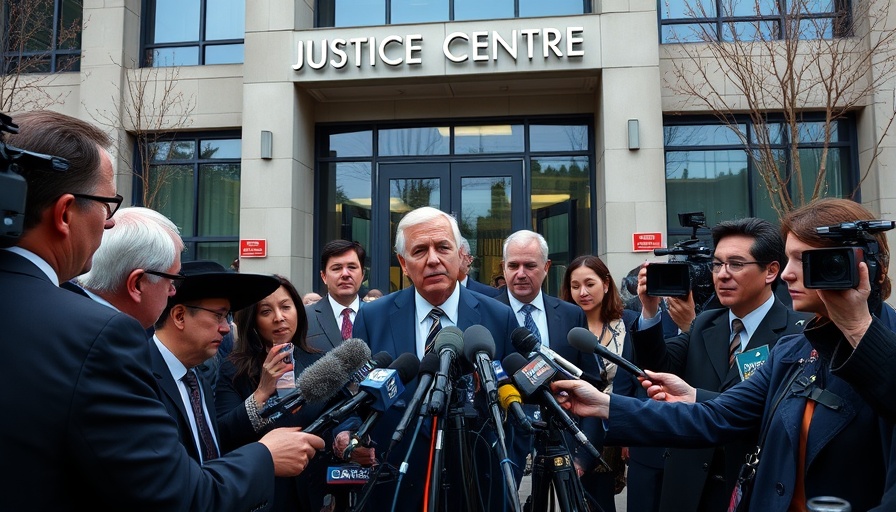
A Disturbing Trend: The Intersection of Religion and Violence
The tragic assassination of Minnesota state representative Melissa Hortman has brought to the forefront not just the act of violence, but the profound ideologies propelling it. This incident underscores a disturbing trend where deep-seated religious beliefs intertwine with extremist behaviors. The alleged shooter, Vance Boelter, has been linked to Christian nationalism—a movement that has increasingly blurred the lines between faith and politics.
Understanding Christian Nationalism
Christian nationalism is a complex and often contentious ideology that asserts Christianity should hold a privileged status in the public square and governmental policies. This belief has gained traction in recent years, most notably during events like the January 6 Capitol riot. By identifying with charismatic forms of Christianity, as Boelter did, adherents often believe that secular democracy undermines their religious values.
Boelter's Religious Journey: A Prelude to Violence?
Boelter's religious awakening at the age of 17, driven by conversations with a devout colleague, marks the beginning of a long journey steeped in charismatic religious beliefs. His commitment to the faith led him to engage deeply with the NAR (New Apostolic Reformation), which advocates for a society governed by Christian principles. These groups often view lawmakers and social advocates who support liberal ideologies, particularly related to reproductive rights, as existential threats against their worldview.
Charismatic Christianity: A Brief Overview
The evangelical movement of charismatic Christianity is marked by beliefs in modern miracles—everything from speaking in tongues to miraculous healings—and operates with the conviction that they are engaged in a divine struggle. This movement's foothold in American politics cannot be underestimated; many believe it is the engine driving Christian nationalism, emphasizing the urgency of restoring a 'Christian America.'
Implications for Society: A Call for Reflection
The implications of Boelter's actions extend beyond the immediate tragedy—they call into question the compatibility of formidable religious convictions with democratic values. Experts emphasize the need for religious communities to reassess their roles in public life and consider how extremism can breed from deeply held beliefs.
Counterarguments: The Diversity of Faith
While the case of Vance Boelter highlights a troubling narrative, it is essential to recognize that not all who identify with Christian teachings share extremist views. Many religious adherents advocate for peace and coexistence, distancing themselves from ideologies that justify violence. As such, many within the faith community are actively working to combat the narrative propounded by extremists and promote a message of love and unity.
What Lies Ahead: Future Trends in Faith and Politics
The trajectory of Christian nationalism poses significant challenges for the future of American democracy. As society grapples with the repercussions of these ideologies, observers speculate on potential outcomes: increased polarization within communities, further acts of violence, and perhaps a reconsideration of how religion interacts with governance. Such a climate necessitates dynamic discussions about the balance between faith and political expression.
Call to Action: Engaging in Constructive Dialogue
As we confront these difficult realities, it is crucial to engage in constructive dialogue about the intersection of faith, politics, and community safety. Advocacy for a nuanced understanding of religious extremism, alongside a commitment to democratic principles, is essential. One way to participate in this conversation is through local forums that promote interfaith dialogue, helping to build bridges rather than walls.
Only by addressing these complex issues can we hope to foster a society where faith is a source of healing rather than division, responding to the tragic loss of lives with a renewed commitment to peace and understanding.
 Add Row
Add Row  Add
Add 



Write A Comment